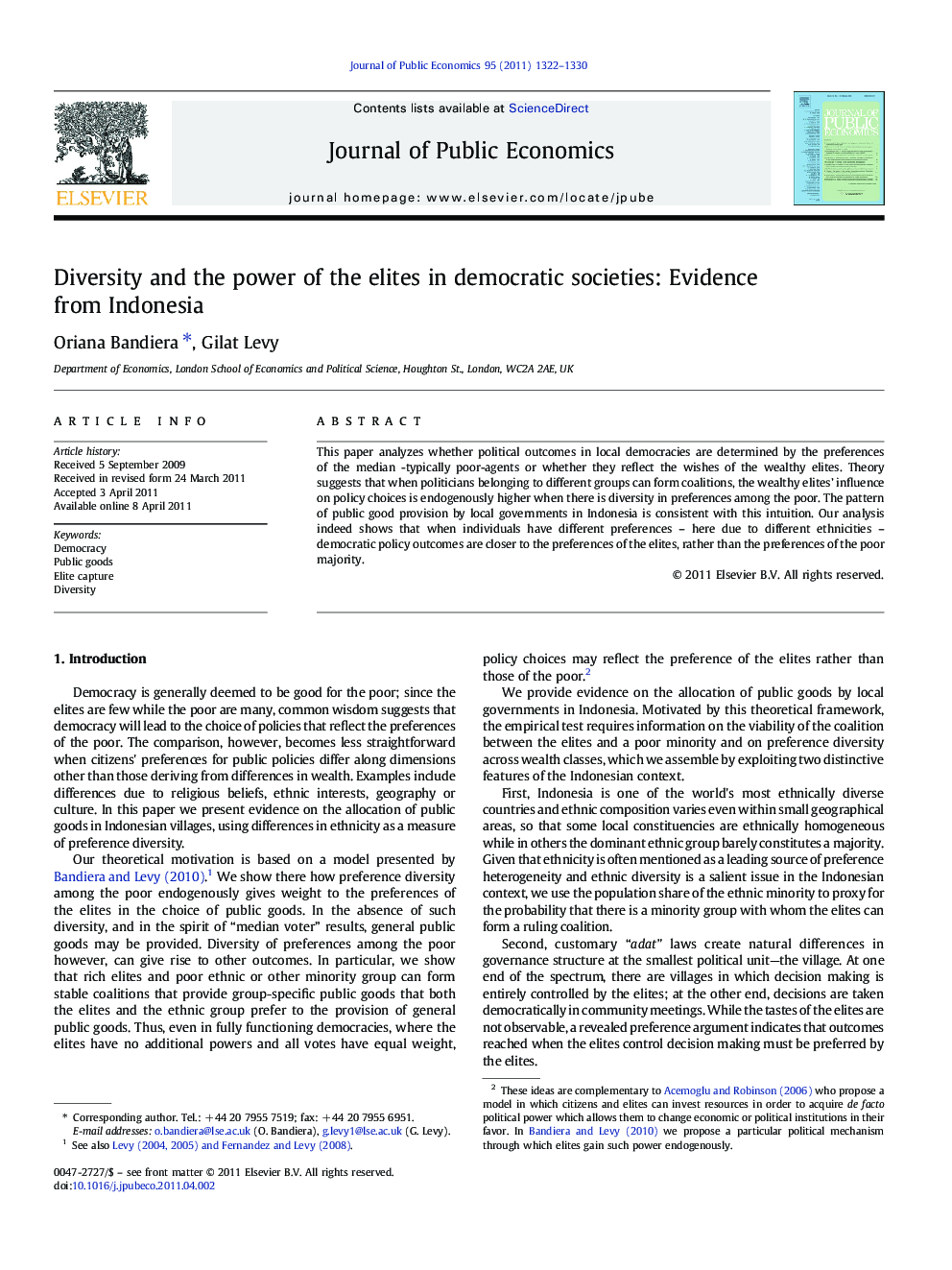| Article ID | Journal | Published Year | Pages | File Type |
|---|---|---|---|---|
| 969022 | Journal of Public Economics | 2011 | 9 Pages |
This paper analyzes whether political outcomes in local democracies are determined by the preferences of the median -typically poor-agents or whether they reflect the wishes of the wealthy elites. Theory suggests that when politicians belonging to different groups can form coalitions, the wealthy elites’ influence on policy choices is endogenously higher when there is diversity in preferences among the poor. The pattern of public good provision by local governments in Indonesia is consistent with this intuition. Our analysis indeed shows that when individuals have different preferences – here due to different ethnicities – democratic policy outcomes are closer to the preferences of the elites, rather than the preferences of the poor majority.
► Preferences for public goods by elites and poor differ depending on type of good. ► If preferences differ, ethnic diversity is correlated with public good outcomes. ► If diversity is high, outcomes are closer to elites' preferences. ► If preferences are aligned, diversity is uncorrelated with public good outcomes.
